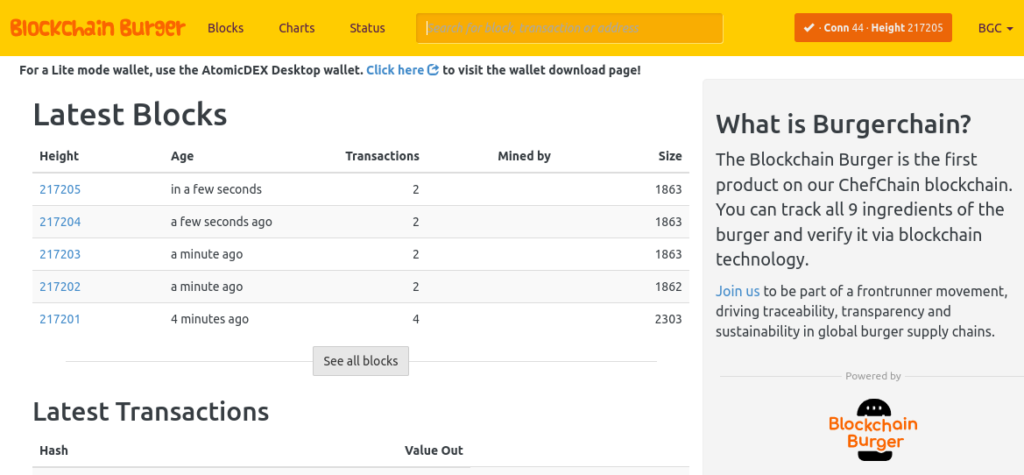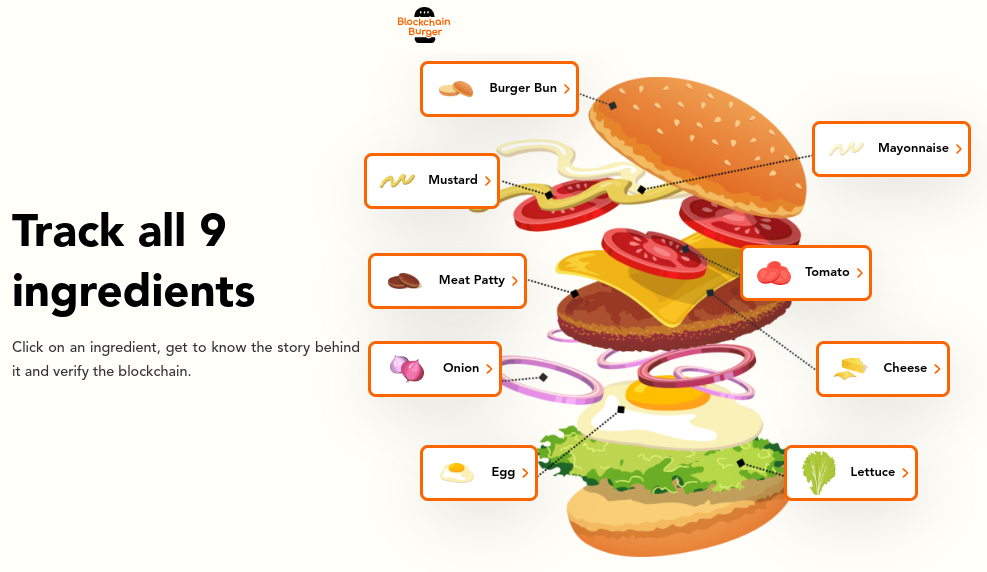Last week my colleagues at open food chain tweeted this out, and it got me thinking to check how easy it was to find public agriculture data? My first search was very US centric, so I added a couple of countries I have interest in working in.
The first search produced the following results.
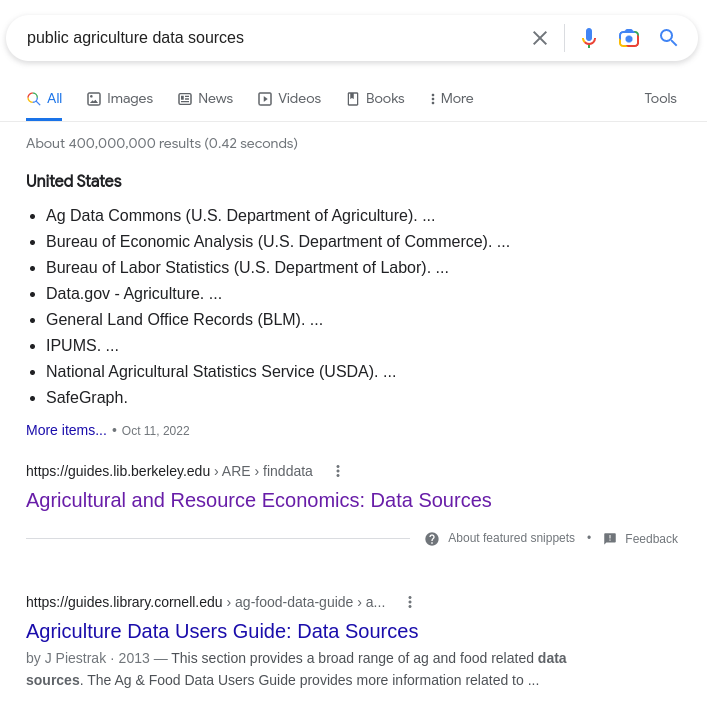
But this wasn't very useful to me, who has a casual interest in agricultural data. Admittedly, I know I know nothing, and there are thousands of people smarter than me on this subject and thousands of more AIs being programmed to decipher this information.
I will limit my search to at least a couple of countries I have an interest in doing some work in.
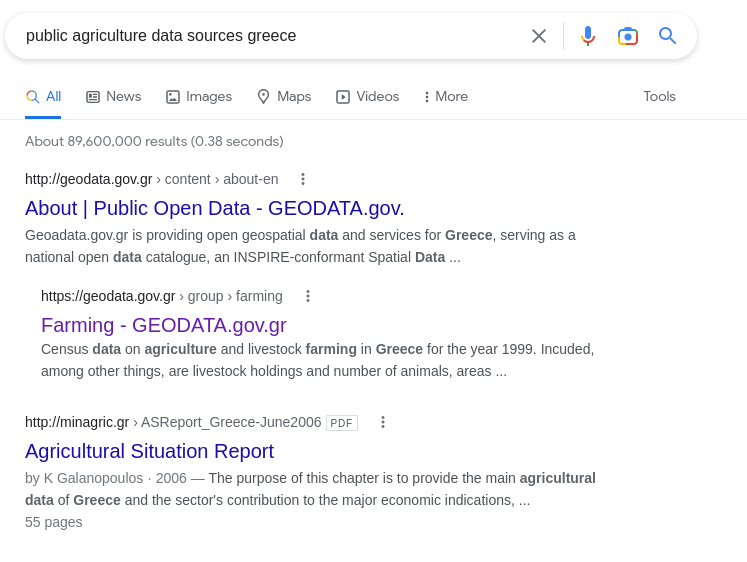
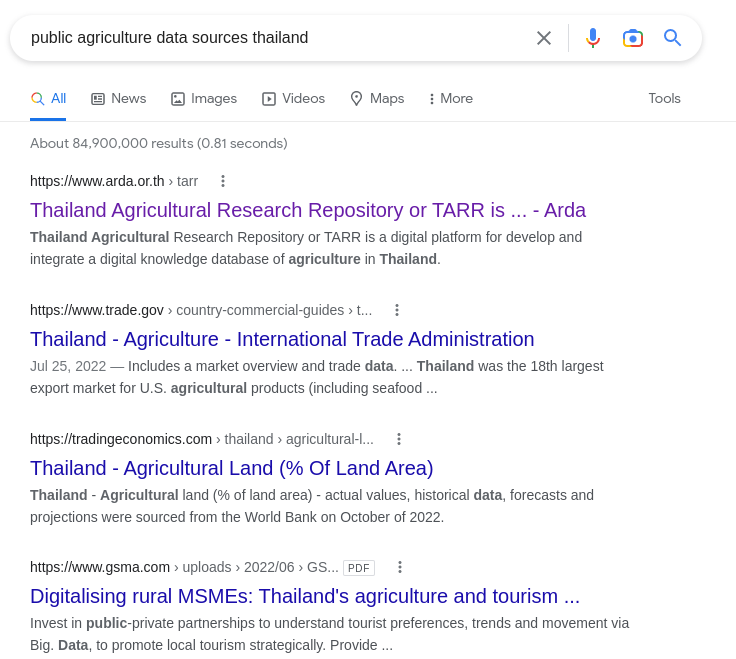
And when I follow these search results I am greeted with info in Greek & Thai languages! So it's not quite a dead end yet, I can look up agricultural data formats maybe?!
I have 20 years of on & off experience reading data on a wire and following protocol specifications to work out what is going on. Although I'm not an expert (anymore) on data formats, I have a few old tricks up my sleeve I can count on from time to time to get into the flow of the data.
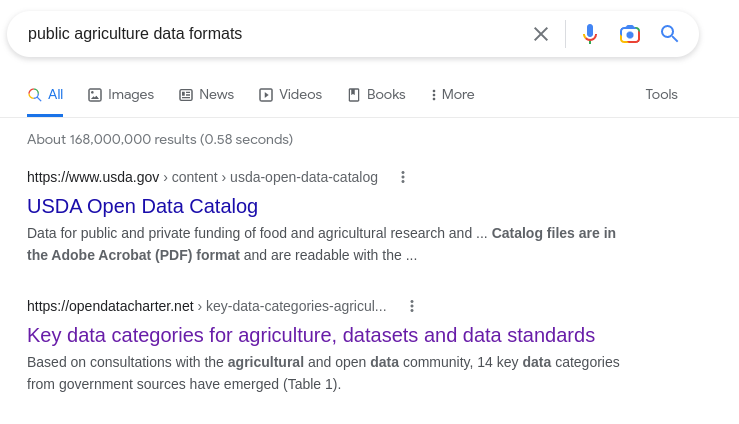
So I am led to believe stuff exists - but I wonder how accessible this stuff actually is?
Through the development of open food chain solution of supply chain tracking and batch matching between suppliers, I've learned to really appreciated the UTXO model for it's simplicity and low barrier to entry for sharing data.
In a private presentation to the open food chain team, I have expressed that it is possible to share field data publicly and not in a data silo that becomes a cost center to an organization to secure & maintain.
Additionally, when a larger organization (for instance Bayer) buys out a smaller organization that has conducted field tests on larvae growth in certain areas, the larger organization more than likely has no interest in continuing or sharing the data from the earlier studies. Sometimes it's too hard to make available, and sometimes it is wrapped up in company policy, and sometimes it is tin-foil hat profit motives. As a public, we don't know.
The way to access agriculture data stored on a blockchain is the same as any other blockchain data - blockchain explorers & the explorer APIs. Wondering about scalability? Well of course, we can add caching between the client and the blockchain if it is a public resource. However, with anybody able to sync a public blockchain, getting a high performance data source is easy to connect to.
